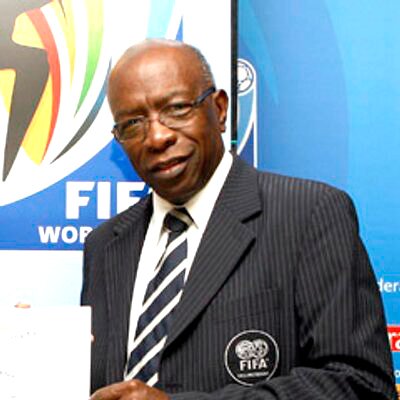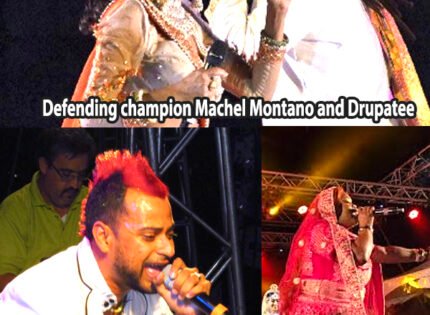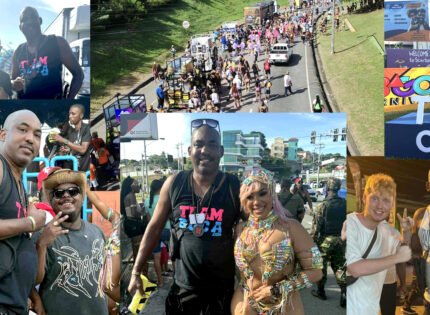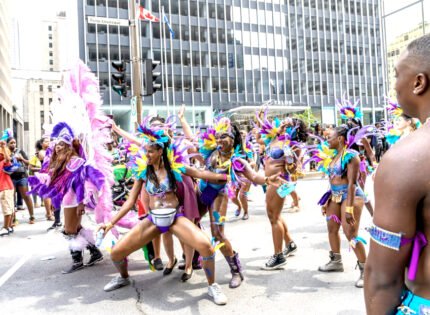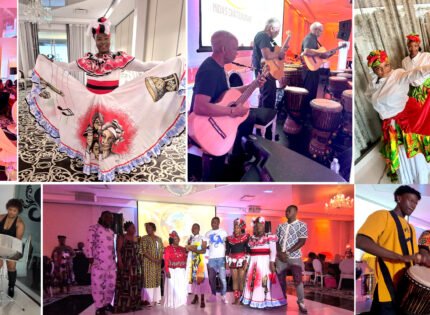A life of football, money and politics
Egbert Gaye
It’s a long way from Rio Claro, a lil’ village in southern Trinidad, to the hallowed halls of power and influence at FIFA, the international controlling body of football – or soccer as they call it here in North America – but Jack Warner made it look easy.
From a distance, the former teacher, university lecturer, football executive turned politician, doesn’t exude much charm, but no one can deny his obvious wit, gumption, together with his entrepreneurial and organizational skills.
So it’s not by chance that his was a slow, steady and calculated climb to the top of the world football body, where a select few make billion-dollar decisions and, if perceptions and allegations are true, partake in multimillion dollar spoils.
Much of Warner’s 28 years as a FIFA executive was clouded by those allegations and perceptions of misdealings, but nothing stopped him from securing the mantle of power and accumulating personal wealth that was incomprehensible to most.
Until May 27 when United States prosecutors unsealed a 47-count indictment accusing Warner and other world soccer figures of a $150 million bribery and racketeering scheme. That day Seven FIFA officials were arrested at a Zurich hotel where they were gathering for a conference and 75 unnamed “co-conspirators,” were targeted for investigation.
Later that day, Warner turned himself in to the Trinidad police to face a list of charges drawn up by the U.S. including:
* Racketeering, wire fraud, money laundering, bribery
• Allegedly leveraging his influence and exploiting his official positions for personal gain
• Allegedly accepted a $10m bribe from South African officials in return for voting to award them the 2010 World Cup
• Allegedly bribed Caribbean soccer officials with envelopes each containing $40,000 in cash.
He spent a night in prison after posting a $350,000 bond and agreeing to return to court to face hearings for extradition to the U.S.
Even as Warner proclaimed his innocence it was obvious that his world was not as secure, as it always seemed to be.
And he immediately started to lash out, targeting two old friends who are now foes: Sepp Blatter, outgoing president of FIFA and Kamla Persad-Bissessar, prime minister of Trinidad and Tobago and the People’s Partnership, the political party he supposedly helped manoeuver into forming the government of Trinidad and Tobago.
He promised an “avalanche” of revelations that will show the links between the mega funding dollars of FIFA, his take, and the 2010 elections in Trinidad and Tobago.
In an address to the country entitled “The gloves are off” he told Trinis and whosoever was watching: “I will no longer keep secrets for them who actively seek to destroy the country.”
In the days following his detention, Warner continued to sit in the T&T parliament where he has held a seat since 2010, jabbing the PM and releasing a few cheques that were supposed to show his funding of the PP party. For the most part it all fell flat, as Persad Bissessar was able to deflect any connection to Warner’s money.
His latest revelation is that he leased a property to the tune of $55,000 for the then-opposition leader in the run-up to the 2010 elections.
These days, as one of the central figures in the ongoing FIFA bacchanal, the eyes of the world are on Warner, a man who grew up of the humblest of beginnings, reared by a single mother among six other siblings.
After excelling at school and earning a teacher’s certificate from Teachers’ Training College and a BA in Education and Diploma in International Relations form the University of the West Indies, he taught for many years at the college level and as a part-time university lecturer.
He started in football in 1966 as the head of football association in the central region of Trinidad, then to Central St. George and eventually as secretary of the national federation in 1973.
In 1990 he became the head of the Caribbean Football Union, which became a stepping-stone to CONCACAF and FIFA.
With 35 members across North America, Central America and the Caribbean, CONCACAF is a formidable force in the decision making process of world football like who gets to host the much-coveted World Cup tournament.
Among the accusations leveled at Warner is that he received large payouts in return for support bids by South Africa and Qatar to host the tournament.
He was also implicated in allegations of world cup ticket fraud and mishandling of money meant for players on the T&T national team that participated in the 2006 World Cup in Germany and FIFA money meant to go to earthquake relief efforts in Haiti.
Allegations of his misdealing followed his foray into politics, where again he used tack and seemingly a lot of his wealth to carve out a special place on the T&T political landscape.
In 2007 Warner was elected chairman and co-leader of United National Congress, as the party headed into the general elections that year. They won 15 of 41 seats and Warner began his tenure as the Member of Parliament for Chaguanas West.
Three years later, after the governing People’s National Movement called a snap election, he established himself as a political force by winning his constituency with the highest national vote total ever in the history of T&T, when the UNC joined with four other parties to secure a landslide. They formed the government, amidst lingering speculation that Jack’s cash had a lot to do with their rise to power.
In the face of widespread concerns about his role in FIFA, Prime Minister Kamla Persad-Bissessar appointed him minister of Works and Transport.
In 2011, following what was described as an investigation into any and all ethics violations at FIFA, Warner announced his resignation from all his positions in international football.
The Bissessar government kept him as a cabinet minister.
When on 18 April 2013, CONCACAF released a damming report that concluded that Warner committed fraud against the organization and FIFA, Warner resigned as minister of National Security. He also resigned as chairman of the United National Congress and as Member of Parliament for Chaguanas West. He subsequently formed a new political party, the Independent Liberal Party (ILP), and won the by-election for Chaguanas West that same year.
By the time all the football issues and politics came crashing down on Jack Warner, he still stands defiant with a pocketful of cash… U.S. dollars that came into his coffers mainly during his 20-something years in international football.
His wealth has been difficult to track, but there are estimations of him owning close to U.S. $25 million worth of real estate in T&T and untold amount of assets in banks around the world.
For Warner it was a long road from that little village in south Trinidad to rubbing shoulders with global leaders, including President Barack Obama, British Prime Minister Gordon Brown and others.
But his legacy in international football is still to be determined; but supporters and detractors alike are glued to the story because of the imposing shadow he casted over football the last two decades.
A Trinidad and Tobago journalist, Lasana Liburd, who has been a keen observer of Warner’s activities over the years, has not been kind. A year or two ago he summed up Warner as such: “He cheated footballers, bullied fans, manipulated auditors and ignored lawmen and the courts. Everyone was at the mercy of his greed.”
Obviously, the man they call Jack has a different take on it all, especially the environment he found himself in, and probably summed it up in a 2010 Caribbean Football Union meeting as he handed out envelopes of cash to members. Some say it was bribe money, Warner says it was a “gift” from Bin Hammam, a Qatari businessman vying for FIFA presidency: “[…] I know there are some people here who believe they are more pious than thou. If you are pious, go to a church, friends, but the fact is our business is our business.”



